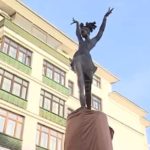Monument to Bulat Okudzhava in Moscow
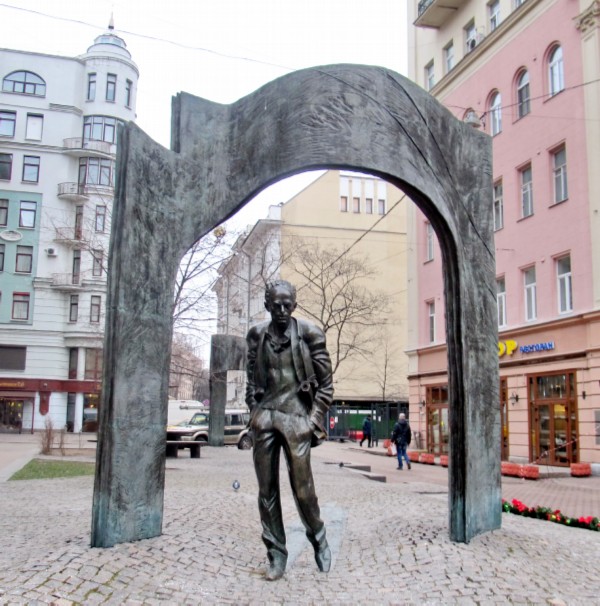
In 2002, admirers of the work of Bulat Shalvovich Okudzhava had their own meeting place in one of the Arbat lanes. On the occasion of the poet’s birthday on May 9, a monument by sculptor Georgy Frangulyan was officially opened in Plotnikov Lane, next to house 43 on the Arbat, where the founder of the author’s song was born and grew up.
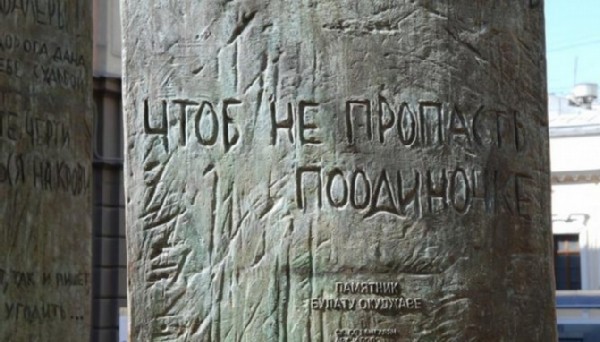
History of creation
Georgy Frangulyan decided to move the Arbat courtyard into the space of the lane, not to be limited to one figure, but to create a whole complex or square, a courtyard with a table and benches, from which the poet emerges. Capture what was close in spirit to Bulat Okudzhava, about which he wrote in his poems and songs, calling himself an “Arbat emigrant.” At the same time, it is a monument to the very culture of the Arbat, its intelligentsia, and the ruined Arbat courtyards.
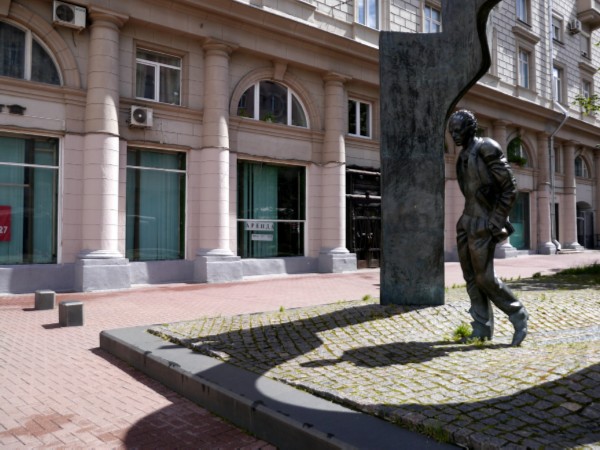
Composition structure of Monument to Bulat Okudzhava
The sculptor worked on the project for almost two years, together with architects Igor Popov and Valentin Proshlyakov. The space of 405 square meters is limited by two slightly crooked arches: they are designed to convey the courtyard aesthetics of the Arbat, to recall the times when many Moscow courtyards were walk-throughs.
The poet is depicted as a 40-year-old, full of strength: “This is him in his best form. He is already Bulat, and in strength, and there is still a lot ahead, ”Georgy Frangulyan explained at the opening of the monument. On the arch behind Bulat Okudzhava, like courtyard inscriptions on the walls, are words from his poems. And in the folds of the jacket you can see the autograph of the creator of the sculpture.
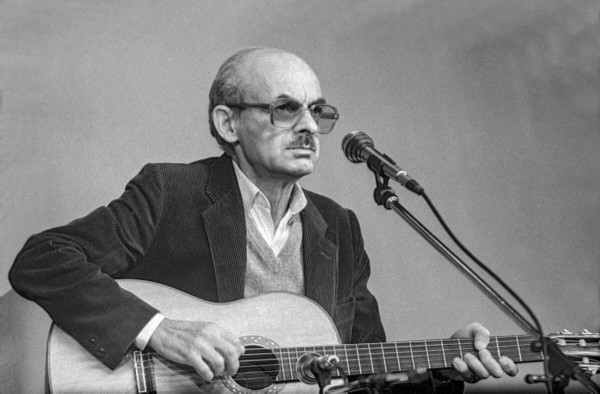
The whole composition is raised on a small step, the low pedestal is paved, a long shadow falls from the two-meter figure of the poet, Okudzhava, as it were, steps out towards the light. Lawn areas and even trees are included in the general space of the monument; the absence of a fence makes it inseparable from the street. Admirers of the bard or just passers-by can sit at a table cast in bronze, complementing the poetic atmosphere of the Arbat, sung by Okudzhava.
